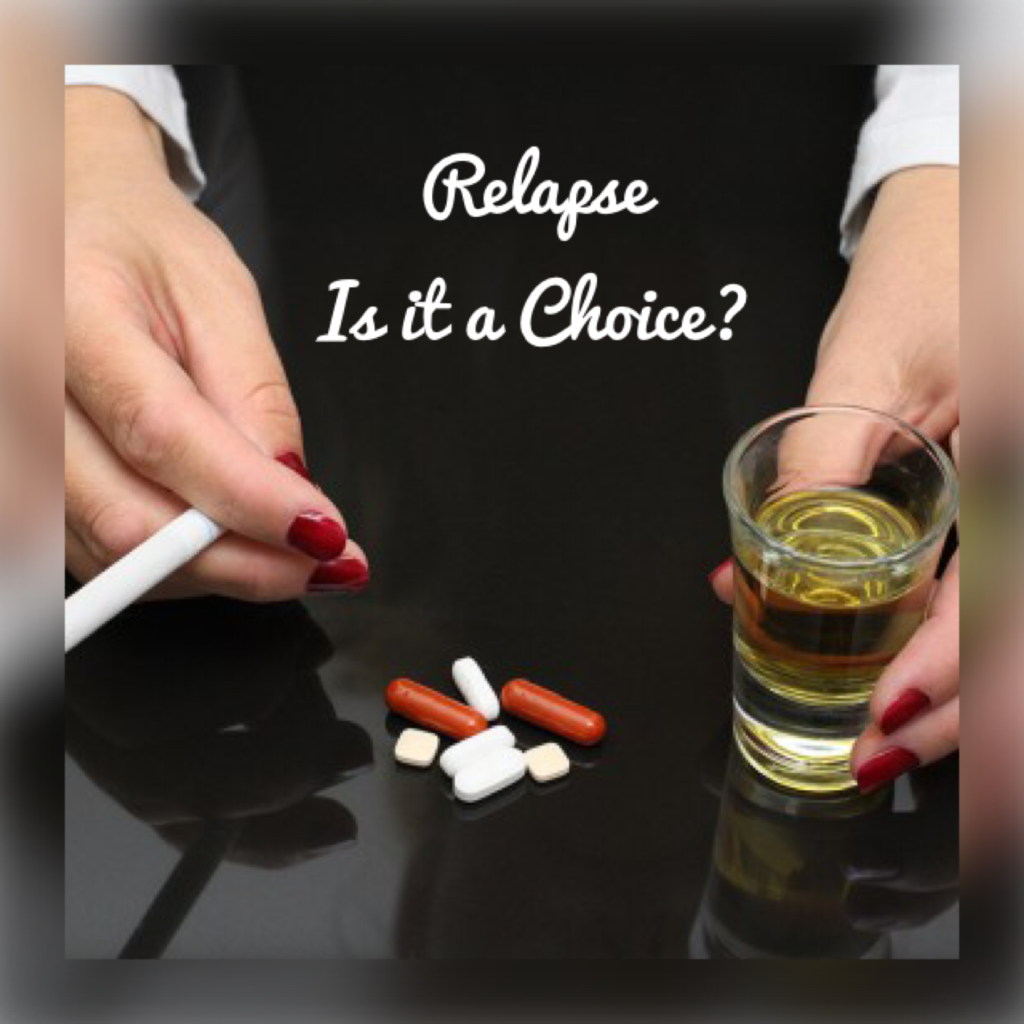
In my opinion, the short answer is….Yes and No! Here’s the deal- once alcoholics or addicts have some drug free time (based on the drug of choice) without alcohol, pills or any other addictive drugs, the physical cravings for withdrawal is over. Prior to this point, I feel it isn’t a choice–they are hooked because they are physically dependent! Keep reading and see if you agree on my thoughts on it becoming a choice…
The withdrawal is the first part of addiction recovery and that’s a major feat! But then there’s the mental part of overcoming addiction which can take any various lengths of time. Most drugs change dopamine levels in an addicts brain. Their brain is telling them you need or want alcohol or other drugs. This is the really tricky part because your brain has been conditioned and rewired with the years of substance abuse to cover up the painful thoughts, deaden emotions and hide from life stressors.
Right after detox is a critical time…
After detox it’s a very critical time for a relapse to happen because an addict hasn’t allowed adequate time for their brain to heal and reconfigure. Clean time is vital. This is why I feel short term rehab programs of 30-60-90 days are merely a band aid because an addicts brain needs additional sober time to recover. I strongly feel long term is the only way to give your brain a chance to recover from abuse before entering stressors in society again.
How drugs affect your brain…
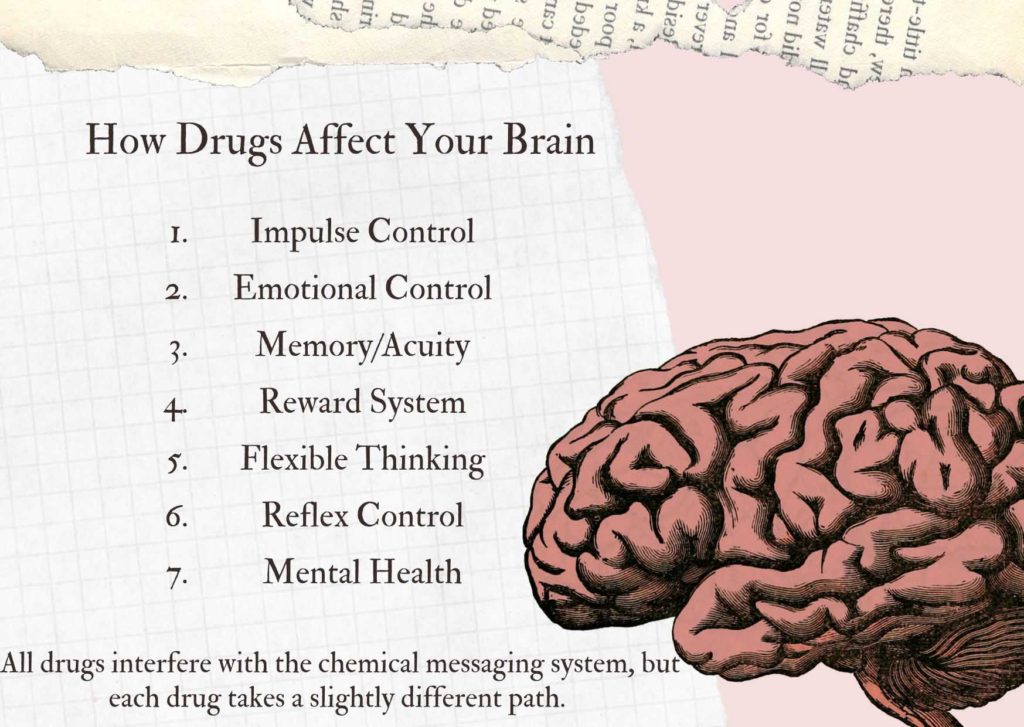
Drugs affect a brain in so many ways as you can see on the chart….
The brain takes longer to heal depending on the specific drugs or alcohol.
The brain will start recovering within one week of the last drink with alcohol. Other areas of the brain and the front of the brain take several months or longer to recover with alcohol.
Opioids and cocaine are highly addictive, which makes them more challenging to re-configure deeply ingrained neural circuits. Additionally, the longer a substance is abused, the more solidified the neural pathway for that behavior becomes. Many medical professionals suggest a minimum of ninety days as a general estimate for dopamine recovery. However, the damage from drugs can last longer, requiring a year or longer for dopamine levels and brain cells to recover. Some drugs can permanently damage the receptors that re-absorb dopamine, preventing the brain from fully recovering.
Brain recovery
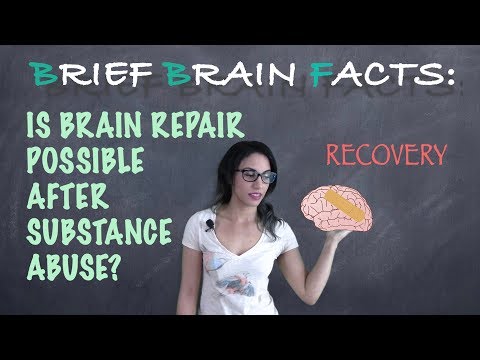
The brain can rewire the neural pathways to overcome self-destructive habits and behaviors and create paths that lead to healthy and sober life choices. With the support of healthcare professionals, friends, and family, plus patience and focus, the body and brain can recover from addiction. Mental fog starts to clear a little bit, and if they’re doing some intentional, purposeful work to be a sober person, that monkey on their back is starting to lose control. He’s losing his grip on them and they are making your own choices now.
In addition to the specific substance and length of use, dopamine recovery depends on a person’s age, genetics, mental health, and how many drugs were used simultaneously.
Once they get a few weeks, a few months or hopefully years under their belts- they have made a conscious choice a million times to not take a drink, pop pills, or shoot up heroin- so you know they’re capable of saying no.
Is it a choice at this point?
I feel it most certainly becomes a choice once the’re detoxed along with having minimum 90 days sobriety time because an addict is able to think with a clearer mind.
In example, my son was healed by Jesus from his addiction after being in two long term Christian recovery programs. You could have no tobacco products while in either faith based programs. He was at Teen Challenge for 7 months in 2017 when he was released. He relapsed within a month by starting out with tobacco products that progressed to weed that progressed back to his two drugs of choice- Xanax and Heroin. Later on, he spent 9 months at The Father’s Heart Ministries in 2019-2020. He maintained sobriety again and was healed from addiction through Jesus Christ. But Satan will always tempt with fleshly desires. If my son picks up any form of addiction including smoking cigarettes or chewing tobacco after long term treatment I firmly believe it’s a choice. But regardless, through Christ, in all ways he was set free from addiction in both of those programs…

John 8:36 — So if the Son sets you free, you will be free indeed.
I believe in God’s Word….once you are free you no longer have a need to pick up that sin again. If you do…it’s your choice. Now you know why I feel it becomes a choice in behavior to pick up another addictive substance again. Some people agree with my thinking. Some people argue it’s an incurable disease. You can form your own opinion. But, I choose to put my faith in God’s Word and label it a choice at this point after being saved from the stronghold of addiction.
Signs of relapse coming and cravings..
People in recovery are at risk for relapse no matter what amount of time clean because it’s up to them to choose to continue to refrain from picking up any addictive substance. It’s ultimately up to them. Avoiding a relapse, in my mind, has to do with staying immersed in God’s Word, connecting with positive influences, staying away from all people associated with your past, and catching the slip up of small addictive habits before it becomes a full blown relapse.
Do NOT enable your loved one.
Set your firm boundaries with them from the get go– before they move back into your home (if they do). Make it know up front what your boundaries are whether it be no smoking, no chewing, no drinking, no tobacco or any drugs of any kind in your home and certain behavior you will not tolerate or there will be consequences. It’s extremely important to stick to your boundaries.

Be on the look out not only for tobacco products, alcohol or any form of drugs but also watch out for the sugar intake…Did you know addicts crave sugar when they are in recovery?
For newly sober addicts and alcoholics, the chemical process of addictive substance use in the brain can cause intense sugar cravings during early recovery. This increases the potential for addiction relapse.
Slip ups and Relapses...
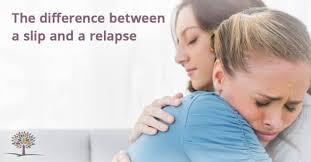
What if somethings seems off and the recovering loved one admits, ” I just slipped up!”
I recommend reading: What is the Difference Between a Slip and Relapse?
But before you decide if it’s a little “slip up” or if it’s a “relapse,” let’s first look at the definition of each of those similar words.
Slip up–A slip is a single unplanned use of alcohol or drugs.
Relapse–A person who’s trying to stop using drugs can make mistakes, feel bad, and start using again. This return to drug use is called a relapse. … It’s the same with quitting drugs. People with drug addictions might get treatment, mess up, and then go back to treatment many times before it works. Relapse happens when a recovery plan is completely abandoned.
These “slip ups” and “relapses” happened with my son’s addiction several times. But each time I recall it started out the same way. His messing up was more notable when he came out of those two different long term Christian based recovery programs. Each time he slowly tried to sneak cigarettes, vapes, tobacco chew products, alcohol, or a marijuana product. I guess he thought he should be able to treat himself to some once he was released from the program. Who knows what he was thinking; he was so sneaky. I thought he would respect my boundaries with having no tobacco or substances of any kind in my home or in him. Wrong! I didn’t learn how boundaries was so crucial until the second time out of long term treatment. Believe me, I was much wiser with boundaries and the enabling thing the second time around–That’s a blog for another time.
Maybe you can relate to these multiple relapses or maybe you were blessed; your child got it the first time around the mountain. If addiction is new to your family, fasten your seat-belt because you are about to ride on the addiction roller coaster with relapses and recoveries.
Knowledge and communication is power….

Educating one-self on addiction while their loved one begins their recovery process is the first step to getting off the gut wrenching roller coaster ride. An equally important step, in my opinion, is learning to improve communication skills. Here’s a scenario in which poor communication and lack of education leads to issues in the home:

Newly-clean and-sober John, comes home from work and looks exhausted. He sits on the couch and begins to fall asleep after a long day at work. His mother walks into the room and sees John in the process of falling asleep and automatically assumes he must be using again. Seeing him fall asleep like this on the couch triggers a memory of her finding him “nodding out” in his bedroom so she begins to panic. She wakes up John up by screaming and accusing him of relapsing. John responds poorly to his mother’s accusations and has an emotional outburst. He storms from the living room to his bedroom and slams the door. They are both left feeling distraught, angry, and resentful.
Now, in this next scenario, John’s mother has educated herself on addiction and recovery and has decided to use healthy communication skills to address her concerns:

John comes home from work and looks exhausted. He sits on the couch, after a long day of work, and begins to fall asleep. His mother walks into the room and sees John in the process of falling asleep. Based on her past with John, she is concerned that he may have relapsed so she decides she should openly address her concern with John. Understanding the emotional instability that can be caused by post-acute withdrawals, she is sure to remain calm and speak from a place of concern rather than anger or panic. “John, wake up, please. Seeing you falling asleep, the way you are, brings back old memories so I just wanted to check on you to make sure you’re adjusting to your new job ok. You know if you’re struggling, you can speak to me, right?” John responds in a relaxed manner and assures his mother he is just tired from work. “I appreciate and understand the concern, I’m just getting used to the new schedule and haven’t been able to sleep much at night, yet.” John’s mother is satisfied with his response and knows that sleeping can be difficult in the first few months of recovery based on what she’s read and has been told. She walks back into the kitchen to finish dinner while John gets his rest on the couch. While his mother is still aware that John is not out of weeds yet in terms of relapse, no further resentment or anger were created during this interaction and they took a healing step towards open communication and trust building.
As we can see in those two scenarios, education and communication are two extremely powerful tools when dealing with a loved one in early recovery.
I know what you are thinking… It’s easier said then done with trying to reason with an active addict. But lets face reality ….situations with addicts always come up. Isn’t it much better to be prepared then to blindly try to handle an unwanted situation that pops up unexpectedly.
Conclusion…
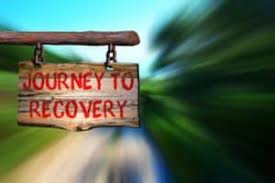
Chances are slip ups and relapses will happen on this treacherous path to long term recovery. Even though slips ups and relapses are inevitable maybe you agree with me or not. It seems clear to me that using and relapse does become a choice to use at some point. We all learn as we go and not everyone’s journey is the same. But, we all have very similar results from addiction with our loved ones. It’s always good to be prepared. Recognize the warning signs. Talk open and honestly to your child about your feelings and observations. Expect respect…do not allow them to disrespect you! Listen to your child as tough as that can be when you feel they are off in their reasoning — remain calm as much as you can and truly listen before you speak your peace…..(this is something that took me a very long time to learn.)
By all means be strong and steadfast with your boundaries!
And always remember… a parent’s intuition is a blessing from God. The Holy Spirit will warn us of any danger’s lurking.

There may be a point where you may need to exercise your boundaries so you are not enabling them to continue their poor choices or actions. Catch them before they go into a downward spiral by talking with your child about consequences for his or her negative actions. Follow your gut. Listen to the Holy Spirit warning you. You may have to ask your child to leave your home as to not enable his activity. I have had to do this on several occasions though the years and it was not always easy but necessary to respect my boundaries and to hopefully save his life from continuing his bad behavior while being comfortable. I know that sounds crazy but I learned this tough love was essential to not enable his destructive ways.
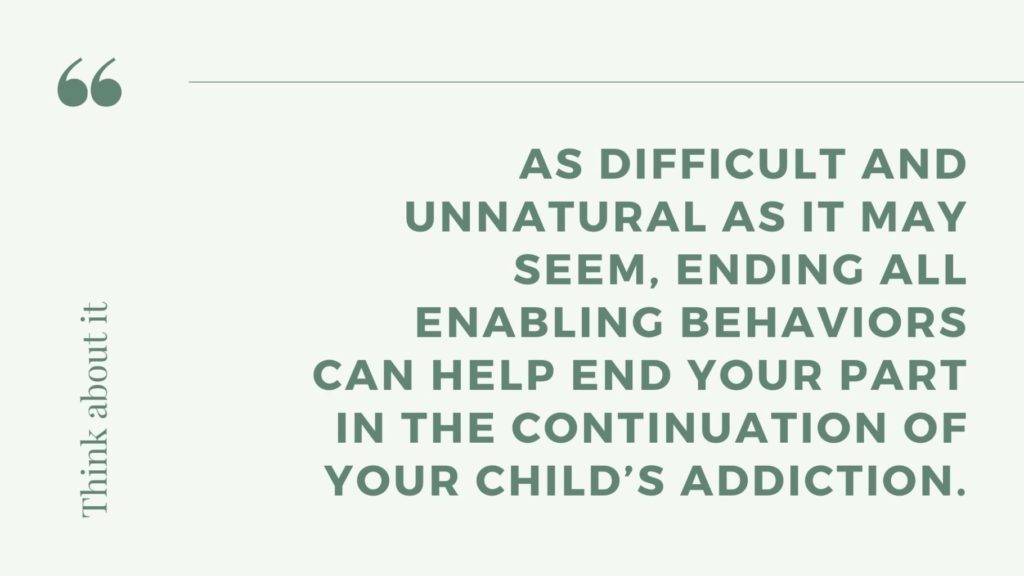
The way I looked at it…If my son was going to slip up or relapse it was not going to be by me allowing him to get away with this activity in my home. Lord forbid if something should happen and I did not try to stop it but enabled him to keep doing it!
God Bless us all in this journey together with addiction. May God help our loved one’s in this spiritual battle with addiction. May God guide us to make decisions to best help our loved one’s and to keep our lives and the rest of our families safe from further destruction! I ask this in Jesus name, Amen!

What are your thoughts…do you think relapsing is a choice? Do you believe God heals addiction? Can you relate to these multiple slip ups and relapse times? Please feel free to share your story!
